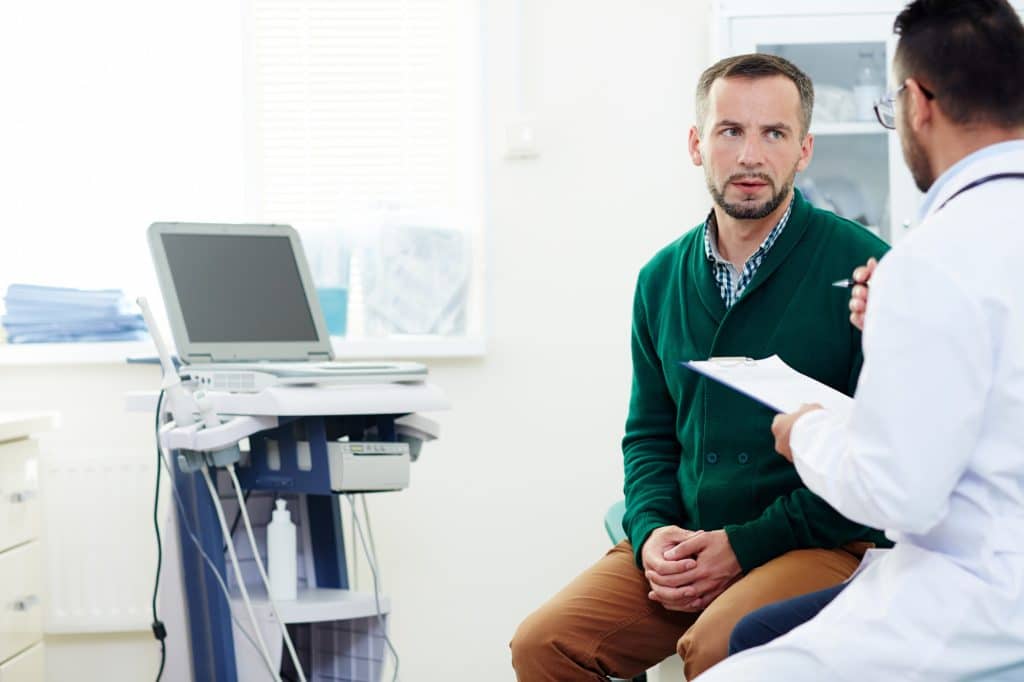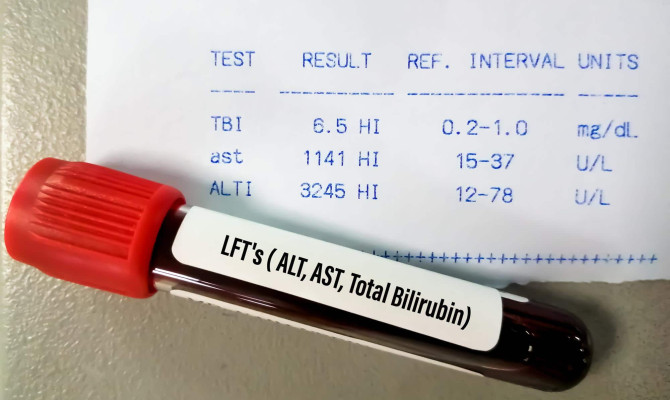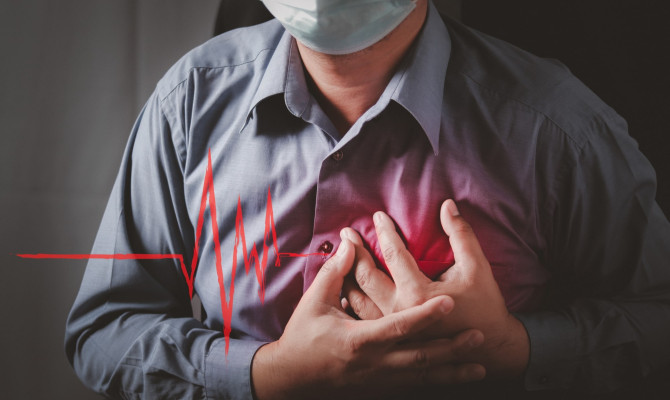Genital Herpes : A General Overview

- Genital Herpes
- 16 Aug 2023
Overview
What is genital herpes?
Herpes simplex virus (HSV) causes genital herpes, a sexually transmitted infection. Genital herpes can produce blisters as well as open sores (lesions) in the genital area. However, the infection can also be asymptomatic, which means that a person does not exhibit any symptoms of having the condition3Overview| Researched based study from Hopkinsmedicine.org
When diagnosed for the first time either extremely early or very late in pregnancy, it can potentially pose complications for both mother and baby.

Causes
What are the causes of genital herpes?
Transmission of the HSV virus that causes genital herpes occurs through direct skin contact, most commonly during oral or genital sex. It can also be transmitted through non-penetrating sex interactions including kissing and foreplay.8Causes| Researched based study from Healthdirect.gov
Herpes simplex virus is divided into two subtypes.
- Herpes simplex virus type 1 (HSV-1) causes cold sores and other oral herpes infections that are spread mostly through oral contact. Genital herpes is yet another possible outcome. HSV-1 is endemic in adult populations.
- Genital herpes is caused by HSV-2. Even in patients who have had a clinically asymptomatic infection for a significant amount of time, people who have HSV-2 genital herpes can experience periods of asymptomatic shedding.
Both HSV types can cause sores on the mouth, lips, genital, or anal regions, and
- Blisters and sores are ideal conditions for the spread of the herpes simplex virus, but the virus can be transmitted at any time.
- Hugging, swimming pools, and toilet seats are not transmission routes for genital herpes.
Symptoms
Symptoms of genital herpes
Symptoms of genital herpes can appear anywhere from a few weeks to a year after infection in some people.1Symptoms | Researched based study from Mountsinai.org
Common symptoms are
- The lesions, such as blisters or ulcers, typically appear in clusters.
- These wounds can cause severe pain and burning.
- They can show up anywhere from the anus and thighs to the vulva and vagina in women to the penis and scrotum in men.
- Itching or pain in the vaginal area, as well as a tingling or burning feeling during urine, are common complaints from patients during the trigger that occurs before lesions form.
Additional signs and symptoms are also possible
- Sores or blisters on the lips or mouth
- Flu-like symptoms, aches, and pains in the joints3Symptoms | Researched based study from Hopkinsmedicine.org
- Urinary retention
- Diminished hunger pangs
- Fever
- A general feeling of illness (malaise).
- Aching muscles in the buttocks, thighs, or knees in addition to the lower back.
- Groin lymph nodes that are swollen and painful to the touch
Transmission
The transmission of genital herpes
Sexual contact with a person infected with genital herpes can spread the virus to you. Herpes can be contracted through: 2Transmission| Researched based study from Cdc.gov
- A cold sore, saliva, genital fluids, oral or genital herpes skin, or genital herpes skin from a sexually active partner are all potential sources of transmission of the virus.
- It is possible to contract genital herpes from a sex partner even if they do not have any outward symptoms of the virus.
- Oral sex with someone who has herpes can potentially spread the virus to the vaginal area.
Herpes cannot be transmitted by
- Contact with a bathroom seat, a bed, or a swimming pool.
- Nothing you touch, not even silverware, soap, or towels, will transmit the disease.
Risk factors
Risk factors for genital herpes infection
- Women are more likely to contract an STD from a male sex partner than men are from a female sex partner.4Risk factors| Researched based study from Nhs.uk
- According to experts, the virus is mostly usually spread by those who are unaware that they are infected.
- Multiple sexual partners or the presence of another STD like HIV raises the risk of acquiring genital herpes. Not using condoms as a preventative measure further raises the danger level.
- Herpes simplex virus infection does not always result in genital herpes. Why some people do and others don’t is a mystery.
Who is at risk for recurrent genital herpes?
Little is known about what may cause genital herpes outbreaks to occur repeatedly.
- There is some evidence to show that ongoing emotional stress may increase the risk of this infection recurrence.
- It is also likely that exposure to sunlight, the common cold, physical exercise, skin injuries, menstruation, and wearing tight or abrasive clothing could all be contributing factors.
Diagnosis
Diagnosis of Genital herpes
Make an appointment with your primary care physician or local sexual health services if you suspect you have genital herpes.7Diagnosis | Researched based study from Nlm.nih.gov
- Your doctor or examiner may be able to establish an immediate diagnosis if symptoms like sores, blisters, and ulcers are present.
- A sample may be taken to determine whether or not you have herpes and what strain you have if you have blisters on your skin. Another STI that can be detected with this swab is syphilis, which manifests as blisters.
- However, if the ulcer is excessively dry, the swab test may not be accurate enough to diagnose genital herpes.
First-time outbreaks and pregnancy-related genital herpes symptoms are the most common triggers for blister checks. 1Diagnosis | Researched based study from Mountsinai.org
Tests that may be performed are
- Fluid from a blister or wound is cultured. A possible HSV-positive result from this test. During the initial outbreak, it is most helpful.
- Fluid from a blister is used in a polymerase chain reaction (PCR) experiment. The presence of the herpes virus in the blister can be determined with this test.
- Antibody testing for the herpes virus in the blood. Infection with the herpes virus can be determined, even between outbreaks, with these tests. If a person has tested positive for the virus while never having symptoms, it means they were exposed to it in the past.
- Screening for HSV-1 or HSV-2 in asymptomatic adolescents or adults, including pregnant women, is not currently recommended by experts.
Treatment
Treatment of Genital Herpes
- Herpes can be treated medically at any stage, from the first outbreak to subsequent flare-ups. They can lessen the duration and severity of symptoms, but they won’t get rid of the infection entirely.5Treatment| Researched based study from Nhsinform.scot
- It is best to begin treatment for repeated episodes as soon as possible, preferably within the first 48 hours.
- The antiviral drugs acyclovir, valacyclovir, and famciclovir are frequently prescribed.
- Reducing your usual daily dose of one of these drugs can help lessen the frequency of symptom flare-ups.6Treatment | Researched based study from Who.int
- Many doctors advise getting treatment for herpes if you suffer from severe or frequent recurrent outbreaks or if you just wish to reduce your risk of infecting others.
- Paracetamol (acetaminophen), naproxen, and ibuprofen are all effective anti-pain medications for ulcers. Medications such as benzocaine and lidocaine can be used to topically numb the region.
Treating genital herpes recurrence
Antiviral treatment for recurrent genital herpes can be given in one of two ways:
- As suppressive therapy, which aims to limit the number of times the infection occurs, or
- As episodic therapy, which aims to improve symptoms or reduce the length of time they last.
A lot of people choose suppressive therapy because it has the additional benefit of lowering the risk of HSV-2 genital herpes transmission to susceptible partners.
Self care
Management of Genital herpes at home
Those with an outbreak of genital herpes should: 4Selfcare | Researched based study from Nhs.uk
- To avoid infection, wash the blistered area with plain or salt water regularly.
- If you’re in discomfort, a flannel-wrapped ice pack can do wonders.
- Use a pain reliever or petroleum jelly (like Vaseline) to ease the discomfort of urination.
- Hand-washing is required before and after using any type of cream or jelly.
- Relieve the discomfort by urinating and splashing water on the genitalia.
Prevention
What can I do to prevent genital herpes?
To entirely avoid sexually transmitted diseases, one must abstain from vaginal, anal, and oral sex.
The following measures can be taken by sexually active people to reduce their risk of contracting genital herpes:2Prevention | Researched based study from Cdc.gov
- Having a partner who does not carry the herpes virus and maintaining a monogamous connection with them throughout time.
- Always and properly using condoms when engaging in sexual activity.
- Keep in mind that not all herpes outbreaks manifest in places that a condom can protect against.
- Even in the absence of visible herpes sore, the virus can be discharged from the skin.
- Because of these factors, condoms may not provide adequate protection against contracting herpes.
To reduce the likelihood of contracting genital herpes from a sex partner who does/does have the virus, do the following:
- Make sure your companion is on daily anti-herpes treatment and should regularly consult his or her doctor about this.
- When one partner is experiencing herpes symptoms (an “outbreak”), it’s best to refrain from having any kind of sex that could spread the virus.
Prognosis
Prognosis of genital herpes
- The prognosis is poor since the virus remains latent in the host for life after infection. For some, a single episode is all it takes.
- Some people experience regular attacks, which may be brought on by things like exhaustion, illness, menstruation, or stress.1Prognosis | Researched based study from Mountsinai.org
Takeaway
Key takeaways
- Common infections with the herpes simplex virus can result in uncomfortable sores or blisters.
- Skin-to-skin contact is the primary mode of transmission. It can be managed, but not cured.
- Most people experience either no symptoms at all or relatively minor ones.
- Depending on the severity of the infection, painful blisters or ulcers may form and persist. Infections cannot be cured by medication, although they can alleviate symptoms.
- Anti-herpes medication is effective in treating herpes in many people. Anti-herpes drugs can reduce symptoms and shorten the duration of an outbreak and are typically started when a person suffers a trigger and fears a repeat herpes episode.
Any feedback on this article?
 This Articles content was accurate
This Articles content was accurate Very Informative Article
Very Informative Article I have a question or a comment
I have a question or a comment
 This article contains inaccurate content
This article contains inaccurate content This article was not helpful
This article was not helpful I have a question or a comment
I have a question or a comment
We appreciate your helpful feedback!
Checkout our social pages
References
-
Mount Sinai
Genital herpes | Symptoms | Diagnosis | Prognosis
-
Centers for Disease Control and Prevention
Genital Herpes – CDC Basic Fact Sheet | Transmission | Prevention
-
Johns Hopkins Medicine
Genital Herpes | Overview | Symptoms
-
National Health Service
Genital herpes | Risk factors | Self care
-
NHS Inform
Genital herpes | Treatment
-
World Health Organization
Herpes simplex virus | Treatment
-
National Library of Medicine
Genital herpes: Overview | Risk Factors
-
Health DIrect
Genital herpes | Causes





































